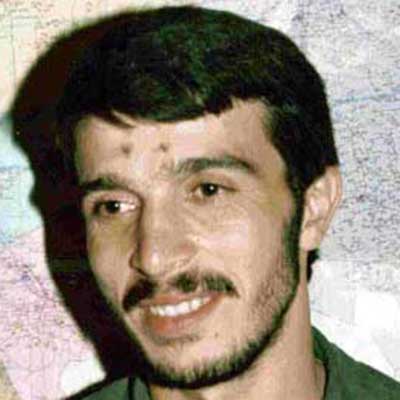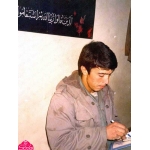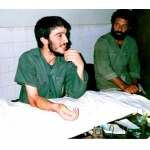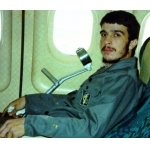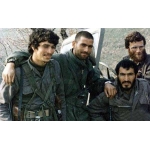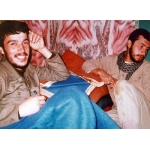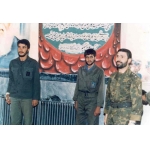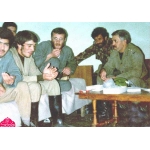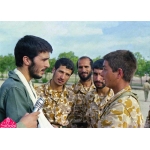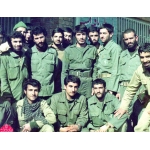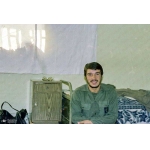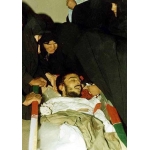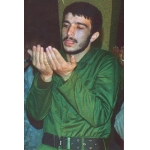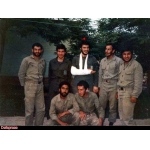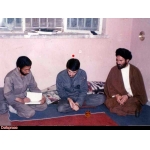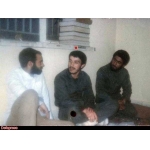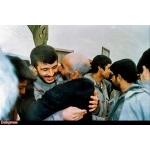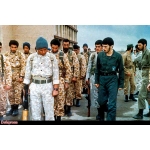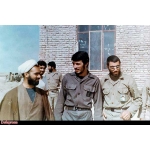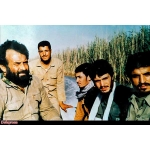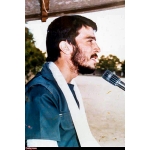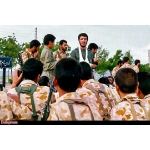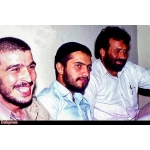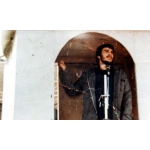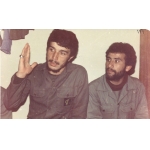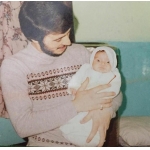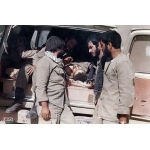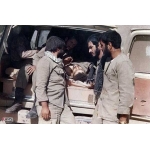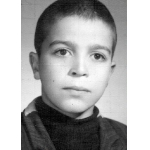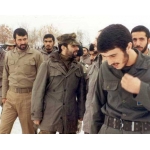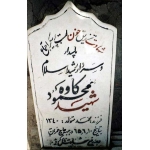Kaveh, Mahmoud
Shahrzad Muhammadi
778 بازدید
Kaveh, Mahmoud
Written by: Shahrzad Muhammadi
Mahmoud Kaveh (1961–1986) was the commander of operations of the Islamic Revolutionary Guard Corps (IRGC) in Saqqez, leading efforts to liberate border regions occupied by anti-revolutionary forces. After the establishment of the Shuhada Special Forces Brigade, Kaveh was appointed its commander, following the martyrdom of Muhammad Boroujerdi in 1983.
Mahmoud Kaveh was born on 22 May 1961 in Mashhad. Alongside studying in high school, he studied religious sciences at Mashhad Seminary. With the rise of anti-regime activities, Kaveh, who was an active religious youth, attended the speeches of Ayatollah Khamenei in the Imam Hassan Mojtaba (as) and Javad al-Aemah (as) Mosques in Mashhad. He became a key organizer of anti-regime activities in his school; actively distributing Imam Khomeini’s flyers and participating in all anti-regime protests.[1]
Following the victory of the Islamic Revolution, he joined the IRGC in Mashhad. Following his six months of training, he became a tactics instructor at the Imam Reza Military Base. It was there he trained IRGC and Basij forces. He later led a twenty-member group to Tehran on a six-month mission to protect the residence of Imam Khomeini (RA).[2]
When Iraq invaded Iran, Kaveh was deployed to the southern war zones, but he was sent back to Mashhad to continue training recruits. Subsequently,[3] he was selected to lead a twelve-member unit tasked with liberating the city of Bukan and quelling the anti-revolutionary spirit in Kurdistan. Shortly after, he was appointed the operation commander of the IRGC in Saqqez, where he planned the liberation of the Bastam border region. He was successful in securing 45 kilometers of the border road.[4]
As the Shuhada Special Forces Brigade was formed, Kaveh became its operations commander. Under his leadership, the brigade carried out several key operations, including: the liberation of Bukan, clearing of the Piranshahr-Sardasht and Saein Dezh-Takab Roads as well as the Kileh and Oshtuzang, the liberation of the strategic Piranshahr-Sardasht route, the seizure of key highlands in the Alvatan region, and the liberation of the Dolato Prison.[5]
In 1983, following Muhammad Boroujerdi’s martyrdom, Kaveh was officially appointed commander of the Shuhada Special Forces Brigade. He played a crucial role in several operations, such as Valfajr 2 (Haj Omran, Iraq), Valfajr 3 and Valfajr 4 (Marivan), Badr (along the eastern bank of the Tigris River), Qader (Sidekan, Iraq), Valfajr 9 (Chewarteh), and Karbala 2.[6]
Kaveh married Fatemeh Emad-al-Eslami in 1983, and the couple had one daughter.[7]
Throughout the war, Kaveh sustained multiple injuries, including during Operation Haj Omran, where he was struck in the head by twelve grenade fragments.[8] Kaveh was known for his obedience and loyalty to the Leader of the Islamic Revolution. His intellect and military genius were very well known. Kaveh had an emphasis on physical fitness and well-being. He frequently participated in sports activities, encouraging his forces to do the same to maintain combat readiness. Despite repeated injuries, he would return to the battlefield before fully recovering.[9]
On September 2, 1986, during Operation Karbala 2, launched in the 2519 Heights near Haj Omran, Iraq, Mahmoud Kaveh was martyred due to the injuries suffered from mortal shrapnel. He was buried in Behesht-e Reza Cemetery in Mashhad.[10]
Praising Mahmoud Kaveh and the Shuhada Special Forces Brigade, the Supreme Leader, Ayatollah Khamenei states: “This brigade was one of our most efficient units, and Kaveh was among the ones committed to observing self-purification. He was truly seeking both spiritual and ethical perfection and the improvement of his military capabilities”.[11]
[1] Mousavi, Sayyed Saeed, Farhangnameh Javidanehay Tarikh (Dictionary of the Immortals of History), Seventh Volume: Biographies of the Martyr Commanders of Khorasan Province, Tehran: Shahed, 2003, pp. 562-564.
[2] Mehrdad, Sayyed Alireza, Fifteen Verses, Mashhad: Moala, 2001, pp. 15 and 16
[3] Bakhtiari Daneshvar, David, Dastan Sardaran (The Story of Generals) 9: Born on September 2, Mashhad: Setareha, 2006, p. 9.
[4] Mousavi, Sayyed Saeed, Farhangnameh Javidanehay Tarikh (Dictionary of the Immortals of History), Seventh Volume: Biographies of the Martyr Commanders of Khorasan Province, Tehran: Shahed, 2003, pp. 567
[5] Unnamed, Rahrovan Vesal, Tehran: Revolutionary Guards Cultural Center, 1994, p. 147.
[6] Ibid;. p. 147.
[7] Mousavi, Sayyed Saeed, Farhangnameh Javidanehay Tarikh (Dictionary of the Immortals of History), Seventh Volume: Biographies of the Martyr Commanders of Khorasan Province, Tehran: Shahed, 2003, pp. 566
[8] Mehrdad, Sayyed Alireza, Fifteen Verses, Mashhad: Moala, 2001, p. 17.
[9] Unnamed, Rahrovan Vesal, Tehran: Revolutionary Guards Cultural Center, 1994, p. 147.
[10] Ibid;. p. 149. [10] Mousavi, Sayyed Saeed, Farhangnameh Javidanehay Tarikh (Dictionary of the Immortals of History), Seventh Volume: Biographies of the Martyr Commanders of Khorasan Province, Tehran: Shahed, 2003, pp. 572
[11] Unnamed, Rahrovan Vesal, Tehran: Revolutionary Guards Cultural Center, 1994, p. 149.


